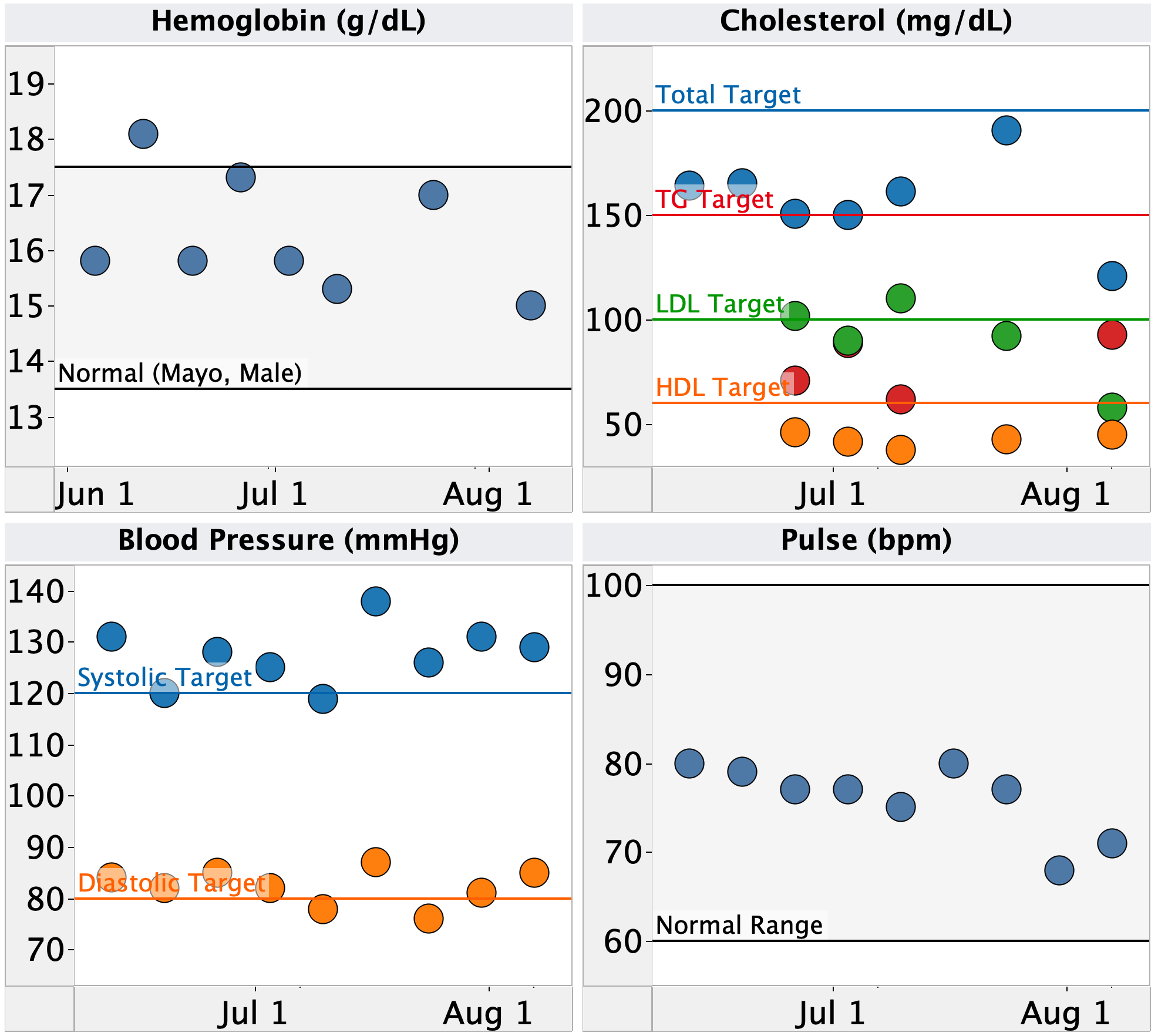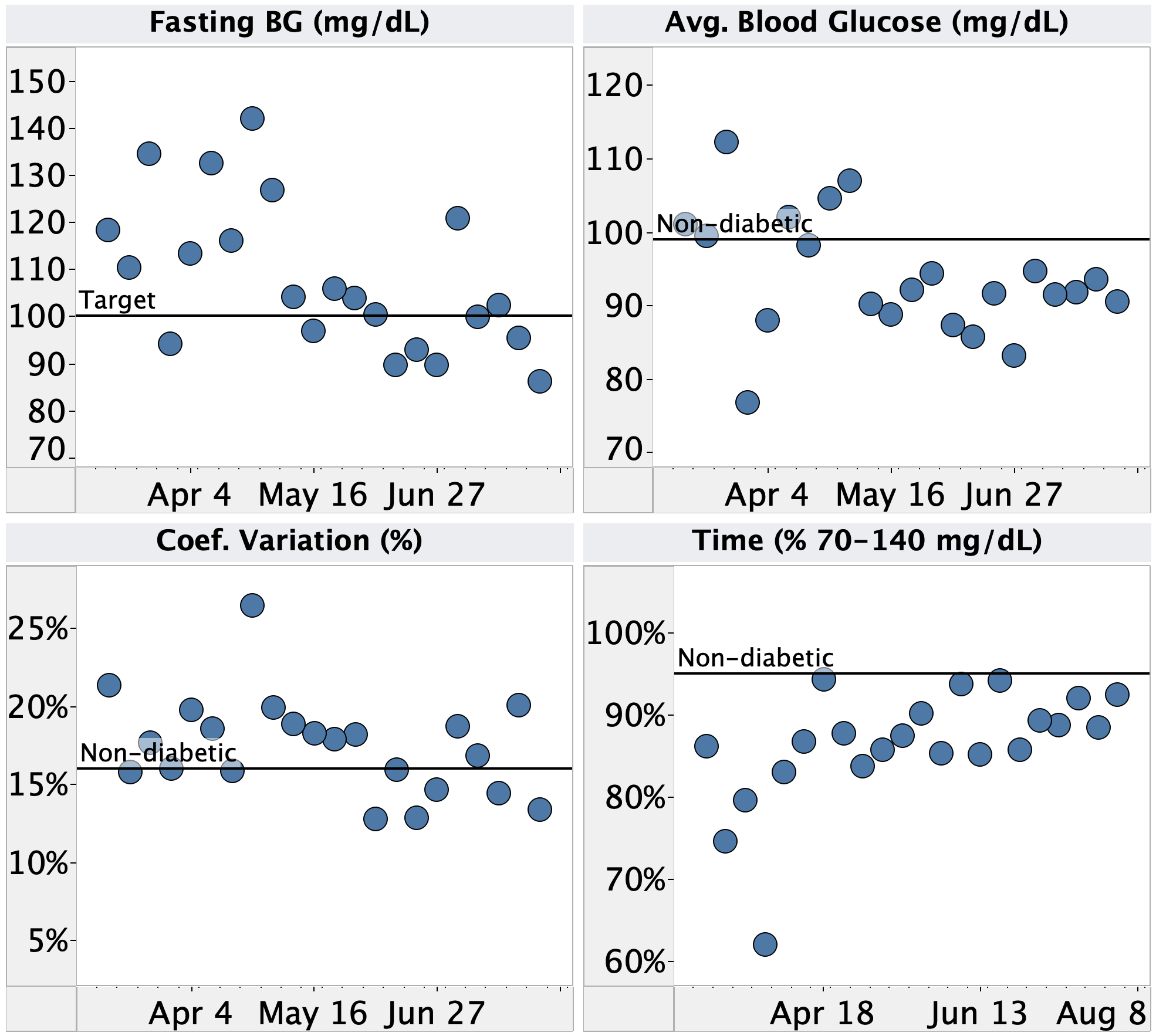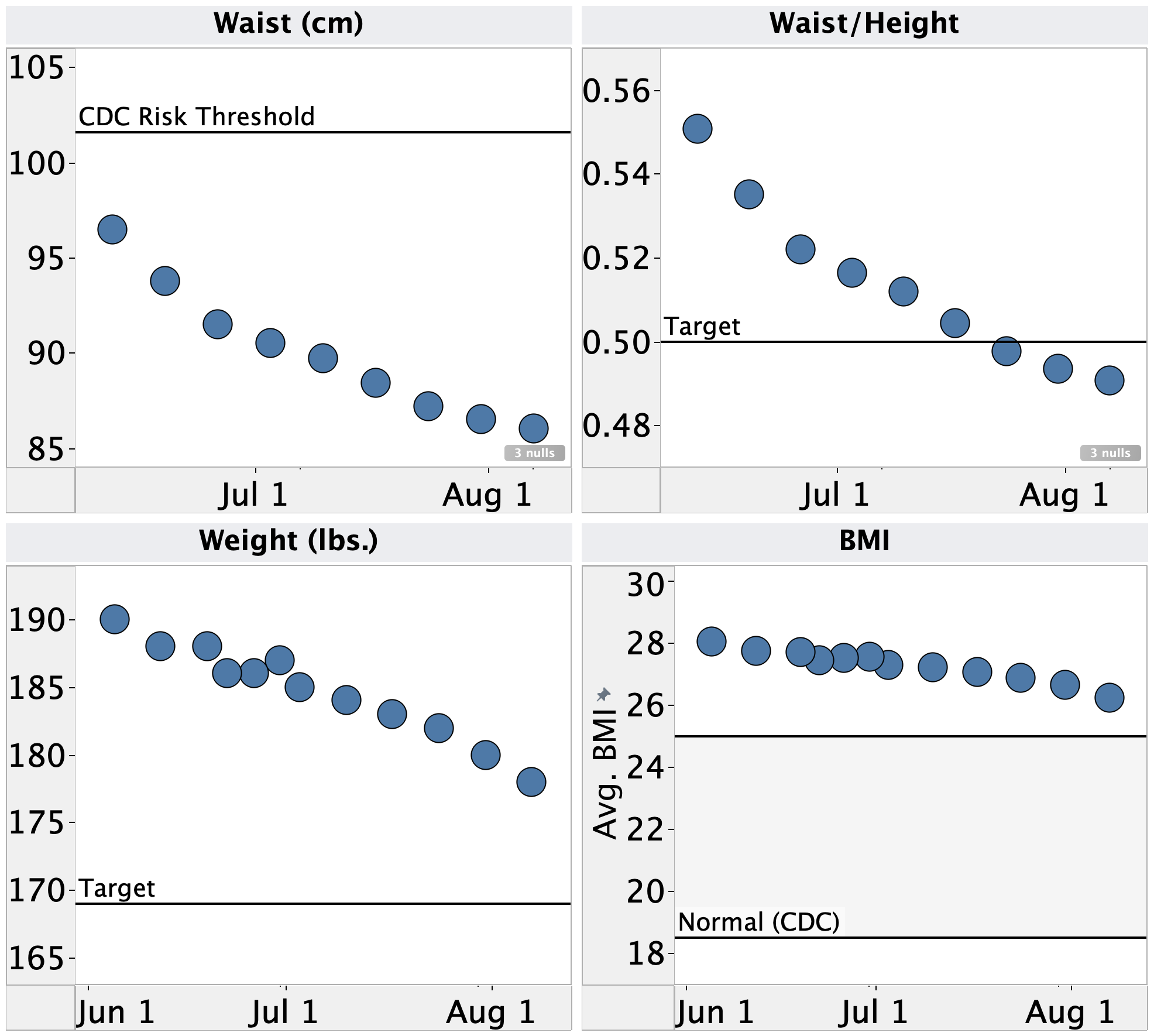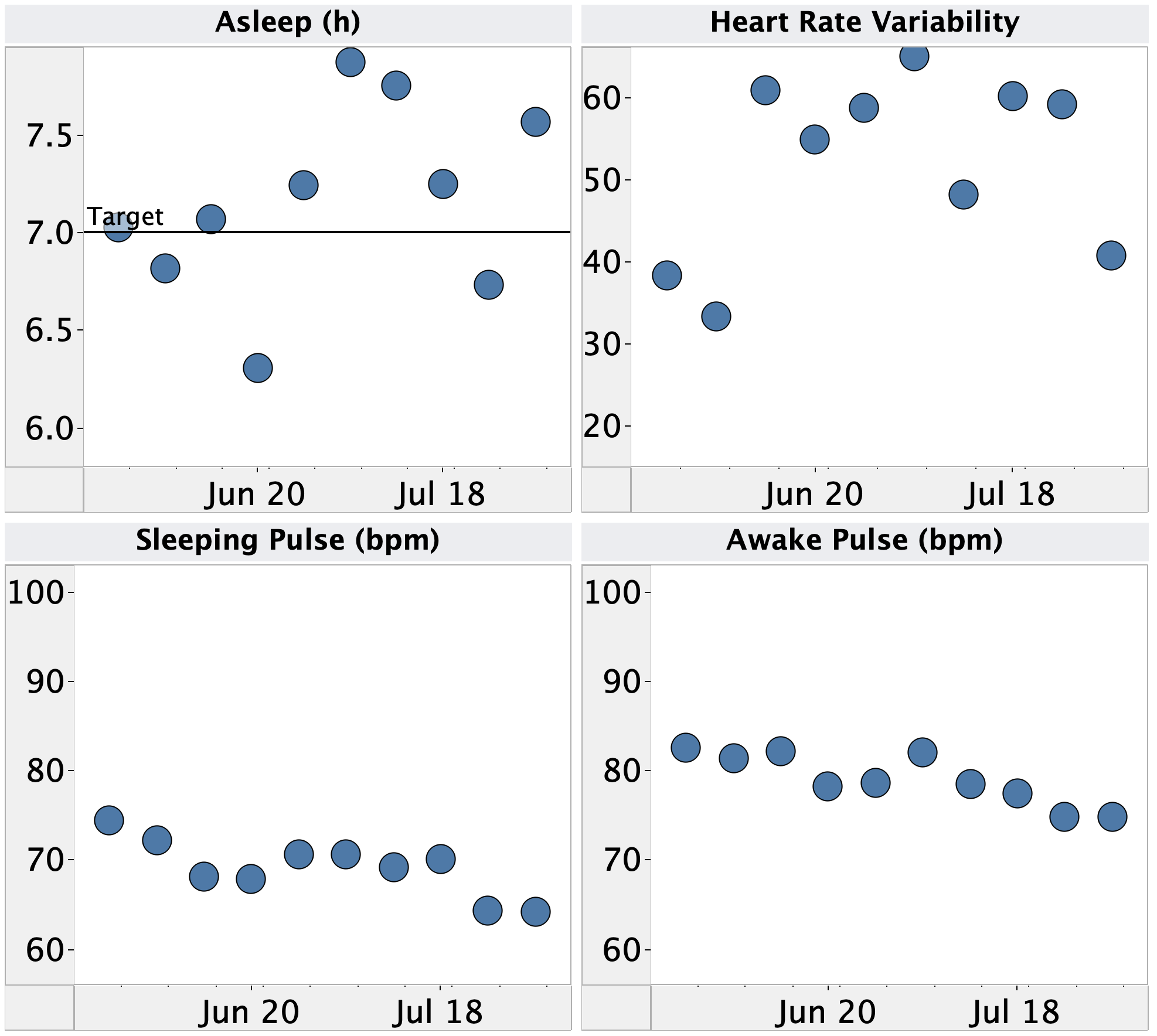For those checking the dates, I post these with a 1-week lag.
Summary:
Active & Planned Experiments
- Comprehensive bloodwork:
- Goal: Establish baseline for a broad range of biomarkers and check overall health
- Approach: WellnessFX Premium panel
- Status: Complete, need to write up.
- Testing blood glucose impact of low-carb foods
- Goal: Check blood glucose impact of new low-carb foods I’d like to incorporate into my diet
- Approach: Follow the same protocol from my previous study
- Status:
- Baseline:
- Glucose re-test: In queue
- Low-carb foods:
- Meal replacements: 2/3 complete, (Ketochow previously reported)
- Flour replacements: 1/4 complete
- Tortillas: Reported
- Bread: 2/10 complete
- Snack bars: 0/8 complete
- Ice cream: 6/6 complete
- Cereals: Reported
- Supplements:
- Vinegar: In queue
- MSG: Reported
- Testing methods of sleeping longer:
- Goals:
- To determine if taking melatonin supplements in the evening extends the duration of my time asleep and subjective fatigue given a consistent bedtime.
- To determine if taking melatonin supplement and/or sleeping longer affects subjective fatigue, blood glucose, heart rate variability, or pulse
- Approach: here
- Status: Data collection complete. Ready to analyze.
What I’m tracking
- Sleep:
- Metrics: total time, heart rate variability, pulse (sleeping vs. waking)
- Method: Apple watch + Autosleep app
- Frequency: daily
- Blood glucose:
- Metrics: fasting BG, Avg. BG, coefficient of variation, time 70-140 mg/dL, time <60 mg/dL
- Method: Dexcom G6 CGM
- Frequency: continuous
- Body:
- Metrics: weight, waist circumference, BMI, waist/height
- Method: scale + Renpho tape measure
- Frequency: weekly
- Other blood:
- Metrics: hemoglobin, cholesterol, blood pressure, pulse
- Method: Hemocue 801, Cardiocheck PA, Omron 10
- Frequency: weekly for blood pressure & pulse, every 2 weeks for hemoglobin & cholesterol
Observations
- Sleep:
- My sleep experiment is complete. Analysis will be posted next Saturday.
- From looking at my manually recorded data, my Apple Watch is occasionally wildly off on either time awake or time asleep, leading to huge errors in total sleep. For example, for this week, the watch reports an average time asleep of 7.7h, but my manual tracking shows an average time asleep of only 6.8h. A look at the data shows the watch data didn’t catch one day where I had insomnia and didn’t fall asleep until 12:30a (claimed I fell asleep at 9:30p, when I first went into bed) and showed me sleeping until 7:40a another day when I know I was at working starting at 5:30a.
- Given these huge discrepancies, I’m going to switch to tracking sleep manually using the final modified protocol from my sleep study. Will specify details in the next post.
- Blood glucose:
- Everything looking good. Still keeping an eye on downward trend in coefficient of variation & fasting BG to see if it’s real.
- Body:
- Tried to eat more at dinner this week, but still lost 1.6 lb. Looks like the plan to eat more at breakfast will be necessary.
- Blood:
- Off week for hemoglobin and cholesterol.
- Pulse has been steadily dropping (0.16 bpm/day, R2 = 0.54). This is showing up consistently on the Omron (resting) and Apple Watch (sleeping & awake). The only thing I can think of to cause this is the weight loss. I’ve found several studies reporting a correlation between heart rate and BMI (e.g. here), but they’re mostly in obese patients or population studies. Will try to find some in non-obese people.
- Blood pressure has been rising the last 3 weeks, but I continue to be skeptical of the measurement device. Looking for ways to verify.
Data:
Blood
Body
Sleep
Methods:
Measurements: See summary section above
Data Processing & Visualization. Data was visualized using Tableau.
Data: here
– QD



